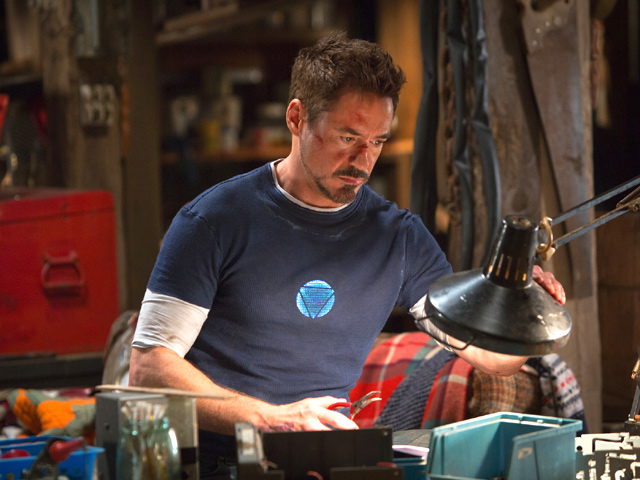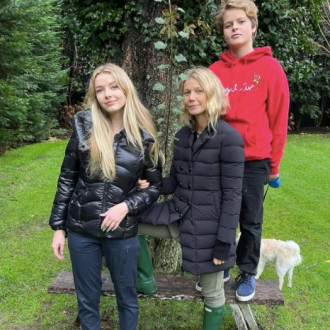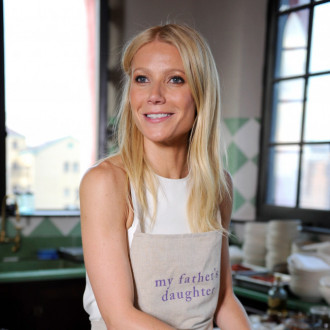Top Psychotherapist Takes Aim At Paltrow Over Daughter's Pierced Ears
By WENN on 22 June 2011
A top Hollywood child psychotherapist has reprimanded Gwyneth Paltrow for giving in to her young daughter's demands for pierced ears, insisting she's setting herself up for a bigger fight the next time Apple wants something her mother disapproves of.
Paltrow recently revealed she allowed her daughter to get her ears pierced when she turned five after the youngster pestered her famous parents for three years.
The actress and her rocker husband Chris Martin initially refused but caved in when little Apple asked mum why her Spanish friends were allowed to wear studs - and she wasn't.
Paltrow said, "Our nanny is Spanish, so the kids both speak Spanish and are very much connected to the Spanish culture, and in Spain little girls get their ears pierced when they're born. Apple would see little Spanish girls and says, 'Why can't I have my ears pierced too.' When she was five we let her have her ears pierced."
But Dr. Fran Walfish insists Paltrow may have have created a monster by giving in to her daughter's demands.
She tells WENN, "Giving in to your toddler or youngster's demands may be reinforcing the very thing you want to get rid of. You are inadvertently teaching your child to fight you longer and harder next time. Parents must create a structure with clear boundaries that reflect their personal family values."
Dr. Walfish, the author of The Self-Aware Parent, has also taken aim at Paltrow's cultural argument, adding, "I understand the Spanish culture where, in Spain, little girls get their ears pierced when they're born. But the Paltrow/Martin family is American/British and it's perfectly OK for them to hold to their initial decision to not have their daughter's ears pieced.
"It is very important for young children to understand who compiles their family unit. The nanny is an employee who could leave her job abruptly if her personal circumstances change or she's offered a better opportunity. Parents need to define what is comfortable to them and stick to it.
"From everything I have seen and read, Gwyneth Paltrow is a good mom. But how she can or cannot be swayed by the power of her child's demands at the young age of five sets the standard for what she can expect during the turbulent teen years."
Contactmusic
Movies and Trailers

The Avengers Must Unite For Their Biggest Battle Yet In 'Avengers: Infinity War' Trailer
Phase Three of the Marvel Cinematic Universe prepares to come to a climax as ‘The...

Mortdecai Movie Review
Despite a superior cast and terrific-looking production values, this mystery romp is a misfire on...

Mortdecai Trailer
When a priceless painting is stolen with the presumable intention of being sold to fund...

Mortdecai Trailer
Charlie Mortdecai may be rude, arrogant and distinctly unlikeable, but he's also a terribly rich...

Thanks for Sharing Movie Review
Even if we've never been to a 12-step meeting, an intelligent script and sharp performances...

Thanks For Sharing Trailer
Adam is a nice guy who's willing to be faithful to his girlfriend Phoebe, there's...

Iron Man 3 Movie Review
Changing the writer and director for this third Iron Man movie turns out to be...
Advertisement

Iron Man 3 Trailer
Tony Stark may have the woman of his dreams, the technological skills of a genius...

Iron Man 3 Trailer
Tony Stark may be Iron Man, but he's feeling less than unbreakable these days. Plagued...

Iron Man 3 Trailer
Tony Stark may be Iron Man, but he's feeling less than unbreakable these days. Plagued...

The Avengers Movie Review
Like four action movies mashed into one, it's often difficult to know where to look...

The Avengers Trailer
Nick Fury is the director of law enforcement and espionage agency S.H.I.E.L.D, which deals with...

The Avengers Trailer
Nick Fury is the director of law enforcement and espionage agency S.H.I.E.L.D, which deals with...

Contagion Movie Review
Soderbergh applies his brainier brand of filmmaking to the global outbreak thriller genre, and the...
Advertisement















